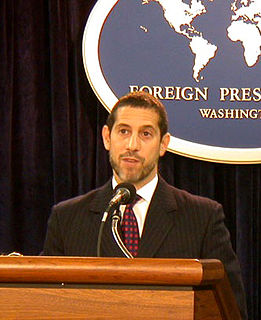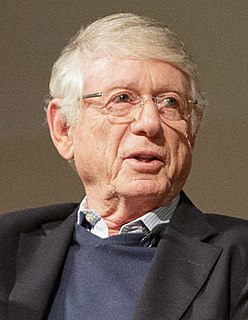A Quote by Sean Hannity
If you sit down and you look at the policies, and analyze where the administration's going and what they seem to be dedicated to trying to achieve, I think a lot of Americans, myself included, certainly, have major questions about that, or major views that don't think those are the proper courses of action that we ought to be following.
Related Quotes
The great philosophers of the 17th and 18th centuries did not think that epistemological questions floated free of questions about how the mind works. Those philosophers took a stand on all sorts of questions which nowadays we would classify as questions of psychology, and their views about psychological questions shaped their views about epistemology, as well they should have.
I'm even stunned at some of the majors you can get in college these days. Like you can major in the mating habits of the Australian rabbit bat, major in leisure studies... Okay, get a journalism major. Okay, education major, journalism major. Right. Philosophy major, right. Archeology major. I don't know, whatever it is. Major in ballroom dance, of course. It doesn't replace work. How about a major in film studies? How about a major in black studies? How about a major in women studies? How about a major in home ec? Oops, sorry! No such thing.
Inanimate objects can be classified scientifically into three major categories: those that don't work, those that break down and those that get lost. The goal of all inanimate objects is to resist man and ultimately to defeat him, and the three major classifications are based on the method each object uses to achieve its purpose. As a general rule, any object capable of breaking down at the moment when it is most needed will do so.
Look, fundamentally there are two sets of questions that apply in the war against terrorism. The one set of questions deals with the, "Where is it going to happen? What's going to happen? When is it going to happen?" The other set of questions deals with, "What is it that our enemy, the terrorists, are trying to achieve?" What are they trying to induce us to do?
I think people cast their votes for a number of reasons. I think if you look at your polls, you'll probably find that many, many people think that our views are closer to what they believe the future of America should be. That our views are closer on economic issues. And a lot of those polls come down to demographics, to age, to how much money you are making.
I don't think it should be a surprise when we're talking about energy and trying to have more home-grown energy, be less reliant on foreign oil when you look at our health care that we're trying to get more affordable health care, that these are going to create major debates in this country and be somewhat polarizing.
We have always dovetailed our cognition to our tools, but when our tools start dovetailing back, where do I end and where does the tool begin? It is going to be a really Twilight Zonish situation. It is definitely interesting. Once Google is in a blood cell sized device in our brain, do we become part Google? There are certainly interesting things to think about and provocative questions, but I don't think those provocative questions are going to do anything to slow down the onset of these technologies arriving and becoming even more pervasive.
I think we need leadership that can gently and with affection remind us of what we Americans mostly agree upon: civility, kindness, tolerance, humour, et cetera. The current Trump administration seems to thrive on trying to enforce a very odd, fearful agenda, that it tries to disguise in a false garment of fondness for the working-class - despite the fact that its policies seem designed to continue the decades-long habit of marginalizing that group.
There's been a lot of talk about how bad the reporting was, particularly with the George W. Bush Administration after 9/11. The general assumption, which I think is a valid one, is that a lot of the major media were on their heels a little bit and prone to share the grief of the nation and to give Bush all the support it could.






































